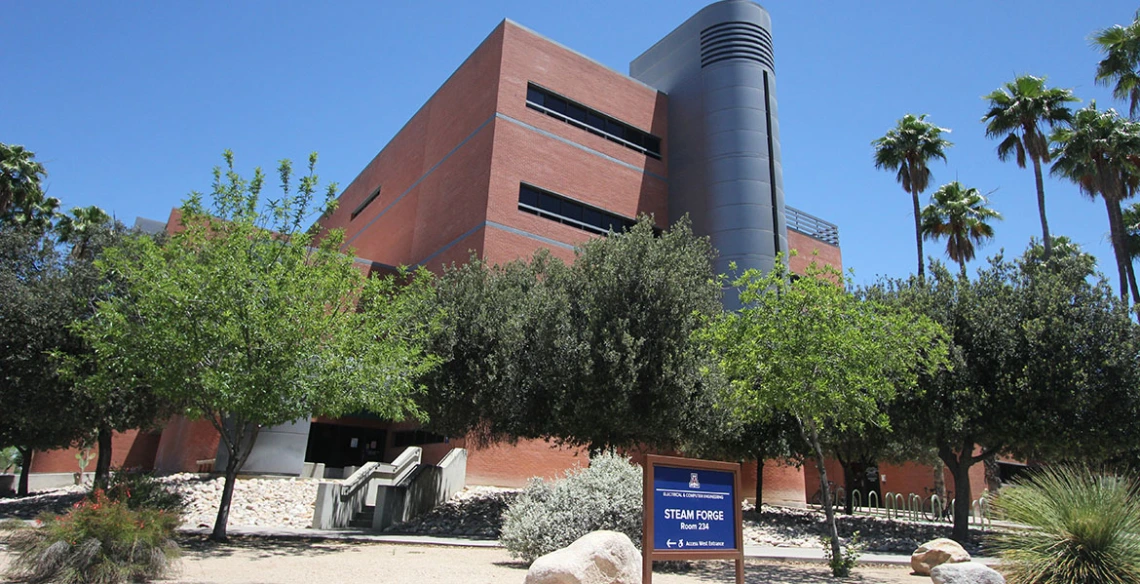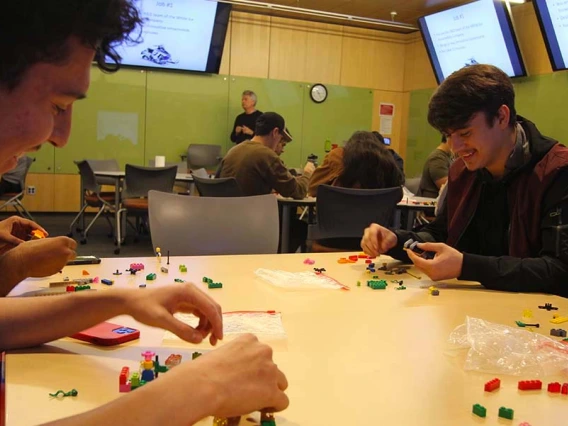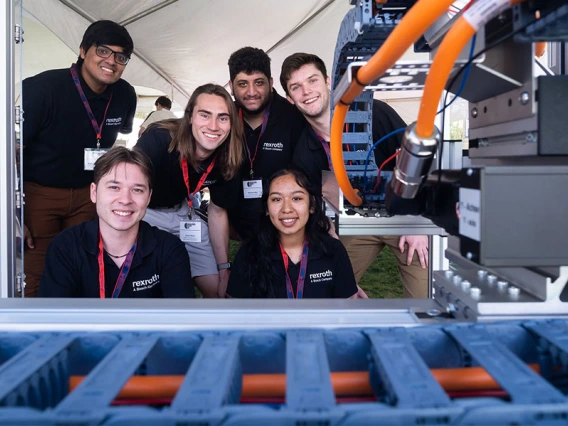Nurturing the Business Ecosystem
A new STEAM FORGE location and startup partnerships are part of a ‘renewed push’ for experiential business education.

Arizona FORGE, the university’s umbrella organization for entrepreneurship, collaborated with the college to open a STEAM FORGE location in the electrical and computer engineering building last fall.
Raphael Lepercq is an engineer and an entrepreneur. He completed his bachelor’s degree in electrical and computer engineering in May and plans to finish an accelerated master’s this academic year.
“Entrepreneurship has always interested me. As a kid, I played around and had a post office. Since it was the only post office in our house, I doubled the prices every couple of hours, depending on my mood,” he said.
Lepercq moved on from the post office to work in real estate and founded a sugar cane juice company before pursuing his engineering education. For his senior Interdisciplinary Capstone project, and through the McGuire Center for Entrepreneurship New Venture Development Program, he developed his own product and business, Gesund Me, a biomedical device company.
Lepercq competed as a finalist in the New Venture Competition in April, and at Craig M. Berge Design Day in May, his team won the $1,000 Mensch Foundation Award for Best Use of Embedded Intelligence.
Lepercq’s decision to create a company and develop a capstone project around his invention makes him an unusual student, but college leaders want more engineering students moving in this direction.
“There’s a renewed push,” said Larry Head, director of the Craig M. Berge Design Program, who helped Lepercq set up the capstone project so that Lepercq was both a team member and the project advisor.
That push is giving engineering students increased exposure to startup companies and easy access to a community within Arizona FORGE for science, technology, engineering, art and math, or STEAM. Ultimately, Head and his fellow college leaders hope these opportunities will give the students new pathways to business success.
Turning Toward Adventure
Arizona FORGE, which stands for Finding Opportunities and Resources to Grow Entrepreneurs, is the university’s entrepreneurial umbrella organization, offering specialized communities and locations statewide. FORGE and the college partnered to open a STEAM FORGE office in the electrical and computer engineering building in October 2022.
One of three campus FORGE locations, the office offers mentoring, programming and space for solo and group study. FORGE is open to students at any stage in an entrepreneurial journey, even those who might not realize they have permission to have ideas, said Paul Veldez, Student Venture Pathways program manager.
“Placing a FORGE office in the ECE building helps students see how to craft entrepreneurial versions of themselves,” he said.
Each student who accesses FORGE services can do so in the way that fits their needs, said Kelly King, entrepreneurial mindset development coordinator.
“They don’t have to launch anything. We are all entrepreneurial as we go about life,” she said. “If they do have an idea, we’re there to help them take the next step.”
Lepercq has found engagement with FORGE helpful and is excited the new location is raising its profile for his fellow students. He believes that engineering students can benefit from business education and learning to be more risk tolerant.
“Engineers are told to make sure it 100% works and every avenue is covered. Entrepreneurship is very creative and adventurous,” he said.
Students and Startups
Lepercq’s business wasn’t the only startup to get a boost from the efforts of a student design team over the past year. Several more were part of the capstone program thanks to a grant from the Technology and Research Initiative Fund, which is overseen by Research, Innovation and Impact at the University of Arizona.
Mark Van Dyke, associate dean of research, describes the situation as a win-win, for startups that may lack sponsorship capital and students in need of real-world experience.
“Startup culture is totally different from large corporate America. Students get to see more of the operations of a company. For engineering students this is really important, because a lot of times they are deep into the engineering aspect of it and may not see the larger context of a business or product development,” Van Dyke said. “Being close to that is a lot easier in a smaller company.”
Another funding source, an experiential learning allocation made by the Arizona Board of Regents for this year, is helping create internship opportunities with companies that otherwise would struggle to add students to their payrolls.
“We want to collaborate more with and support the startup and economic development community in and around Tucson,” said Van Dyke.
New Paths
Head, Van Dyke and other college leaders are intent on building these on- and off-campus partnerships so that engineering students can acquire business experience and knowledge within the college as part of a four-year degree program.
With the help of options like the Eller-Engineering Entrepreneurship initiative, New Venture Development, FORGE services, and business-focused internships, Van Dyke hopes to see more students graduate with confidence in their ability to take their inventions to market. Some might even consider launching companies just after graduation, if not before.
“The grand vision here is that it all comes together and gives these students pathways that didn't exist before,” Van Dyke said.



